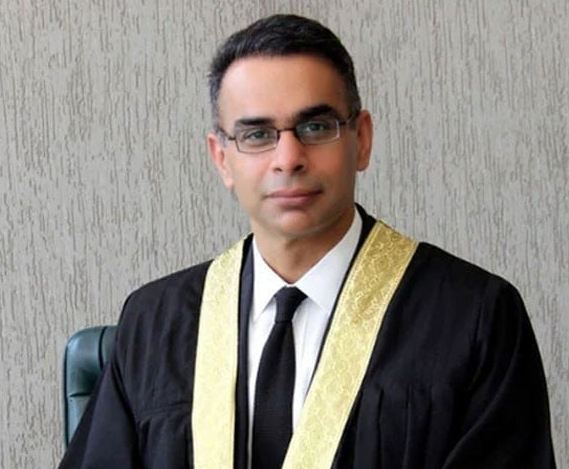Judge tells AAG illegal surveillance a crime punishable by law, demands clarity on relevant law
Court Reporter
ISLAMABAD: The Islamabad High Court on Wednesday ordered telecommunication companies to refrain from recording phone calls for surveillance purposes, warning that they would be held accountable if their equipment was used for illegal surveillance.
The order came as Justice Babar Sattar of the IHC resumed hearing on a petition challenging the alleged audio leak involving former prime minister Imran Khan’s spouse, Bushra Bibi, and Najam Saqib, the son of former chief justice of Pakistan Saqib Nisar.
During the hearing, Justice Sattar asked the lawyer representing the Pakistan Telecommunication Authority (PTA) why they had not submitted their response.
The lawyer replied that they were unable to submit their response due to the holiday.
Later, Additional Attorney General Munawar Iqbal Duggal appeared alone on the roster.
Justice Sattar inquired about the law under which citizens’ calls were being recorded.
In response, the additional attorney general stated that under Section 54, the PTA had the authority to record calls.
The court inquired which law authorised the PTA to conduct surveillance.
The AAG said the legal framework allowed it.
The court demanded clarity on the law governing the recording of citizens’ calls. It also instructed the AAG to provide a formal response and specify who had given permission and who had been authorised to record people’s calls.
The AAG sought some time to file a response.
Upon this, the judge expressed annoyance, remarking, “How much time do you need?” and questioned the AAG when the petitions were filed.
The AAG responded that the pleas came in 2023.
At this juncture, the judge remarked, “According to you, no one was allowed to record calls. If you retreat now, there will be consequences. The law states that the federal government can grant permission, but according to you, permission was not granted.”
The court questioned why, if the Prime Minister’s Office, Ministries of Defence and Interior, and PTA had said no one was allowed, permission was granted.
The additional attorney general again requested some time.
Justice Babar Sattar questioned the AAG if he did not know about today’s hearing.
The judge remarked that “these petitions were under consideration for a year. If the federal government lies in court, how will the matter proceed? Reports have been collected from the Prime Minister’s Office and other institutions, and it has been stated in the reports that no one was granted legal interception permission.”
At this, AAG Duggal said his [previous] response was limited to the audio leaks.
Later, Justice Babar Sattar directed the additional attorney general to read the relevant sections of the Telecommunications Act.
Justice Sattar stated that illegal surveillance was a crime punishable by law.
“When the federal government submitted its response, the court took it seriously. If telecommunication companies’ equipment was used for illegal surveillance, they would be held responsible.”
The court ordered the telecommunication companies to refrain from recording phone calls for surveillance purposes.

















